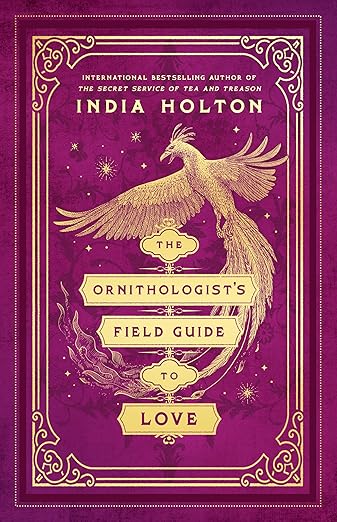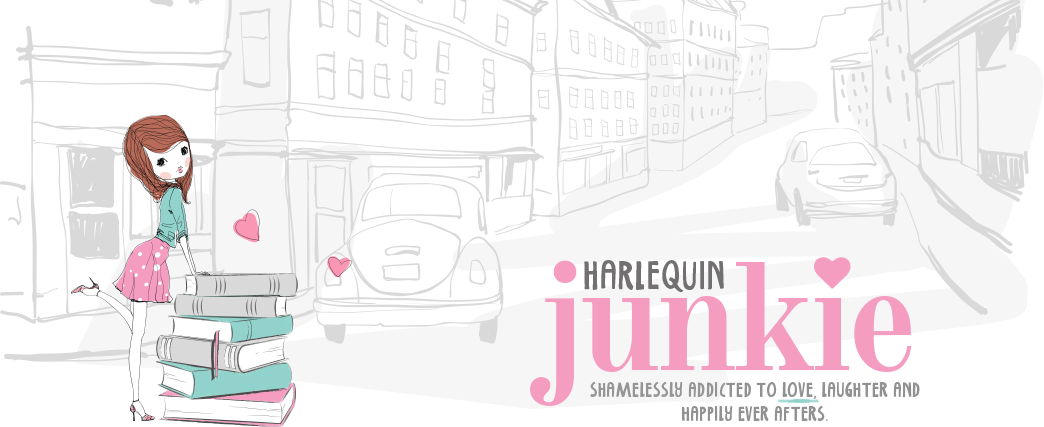Today it is my pleasure to Welcome author India Holton to HJ!

Hi India and welcome to HJ! We’re so excited to chat with you about your new release, The Ornithologist’s Field Guide to Love!
Hi and thank you so much for hosting me! It’s lovely to be here.
Please summarize the book for the readers here:

Please share your favorite line(s) or quote from this book:
It’s hard to choose just one, but this quote from Chapter One encapsulates the main character’s personalities:
“Mr Lockley!” Beth’s exclamation shook her vocal chords, which were used to only gentle employment. “What do you think you are doing?”
His grin deepened. “I think I’m stealing your bird, Miss Pickering.”
Please share a few Fun facts about this book…
- I seem to have a habit of coming up with very concrete book titles! I considered spreading my wings a little with this latest book and nesting within its title a bird pun of some kind. But in the end the word ‘ornithologists’ was just too fun to leave out.
- In terms of inspiration, I took a lot from the birds outside my window. Right now as I type this, a grey warbler is singing beautifully. It’s also known as the rainbird, as when it sings that often means rain is on the way. Indeed, autumn storm clouds are gathering over the forest.
What first attracts your Hero to the Heroine and vice versa?
He notices how sweet she is, and she notices his strong thighs. Really, things could only improve from there!
Did any scene have you blushing, crying or laughing while writing it? And Why?
I laughed all through the book, which is basically my job. If I’m not laughing, it means I don’t find the scene funny, and therefore can’t expect a reader to either. One of the characters, Mrs Quirm, always had me chuckling with her lines, such as “one might tramp all one likes about the countryside, but walking across town is entirely déclassé.”
I don’t blush when writing, because I find that romantic scenes are among the most technical to write, and therefore are about as blush-inducing as the punctuation that holds them together. As for crying – I always cry at the end of my books, and in fact I know that, if I’m not crying, it’s not the end, and I have to keep writing until the tears come.
Readers should read this book….
… if they enjoy warm-hearted cozy fantasy that weaves together a fun caper with a swoony romance, interspersed by wild, enchanted birds.
What are you currently working on? What other releases do you have in the works?
Next in this series is The Geographer’s Map to Romance, due out in 2025. It’s Anne of Green Gables meets disaster movies, and I had a lot of fun writing it. I’m currently working on the third book, which also involves a pair of academics getting themselves into trouble.
Thanks for blogging at HJ!
Giveaway: One copy of THE ORNITHOLOGIST’S FIELD GUIDE TO LOVE for a U. S. only winner.
To enter Giveaway: Please complete the Rafflecopter form and Post a comment to this Q: Do you have a favourite bird?
Excerpt from The Ornithologist’s Field Guide to Love:
THE ORNITHOLOGIST’S FIELD GUIDE TO LOVE by India Holton
Berkley Romance Trade Original | On Sale July 23, 2024
ExcerptSuddenly, the trees rustled. Hippolyta and Beth paused, their faces lifted and their senses straining for a sight, sound, or magical vibration of the pileated deathwhistler. Behind them, the servants took this opportunity to lay down their burdens (literal: tool bags, birdcage, heavy boxes, picnic hamper, picnic table and chairs; and metaphorical: weariness for the drudgery of their job). They wiped their brows and pushed up their sleeves in a manner Beth would have envied had she not been so intent upon the trees.
“There!” Hippolyta tossed aside her glass of lemonade without looking (braining a red-tufted mousetwitter that happened to be pecking about in the undergrowth, thereby bringing an end to its species on the Continent and losing herself, had she but known it, several thousand pounds). Her attention focused instead on a flutter of gold among the leaves. “Quick, the net!”
But even before Rupert could order a servant to obtain the net from a porter and bring it to him, whereupon he could present it to Hippolyta, the deathwhistler was off. With a swoop of wings, it lifted its coin-colored, peacock-size body from a branch and began to fly away along the forest path.
“After it!” Hippolyta shouted.
Beth lifted the hem of her long white skirt and hastened after the deathwhistler, Hippolyta hot on her heels with a rustle of yellow taffeta. They ran along the path, parasols bobbing, dust billowing as their boots struck the dry earth. The servants watched them blankly.
“Faster!” Hippolyta urged.
But suddenly, Beth staggered to a halt. The bird glided on a short distance, then descended to the path, its wings folding, its bronze crest glinting in the sunlight.
“Why do you stop?” Hippolyta demanded-and, at Beth’s urgent reply, staggered to a halt herself before she ran headlong into a chasm. Dropping her binoculars in surprise, she watched them plummet several hundred feet to break against jagged rocks below.
“By Jove!” she shouted.
“The deathwhistler seems aware of our predicament,” Beth said wryly as the bird flickered its long-feathered tail at them.
“The chase is not over yet!” Hippolyta averred. “I am determined to protect that bird from unscrupulous hunters [i.e., her rivals] and see it safe in the Duke of Wimbledon’s aviary. No deathly chasm shall stop me! Propellers!”
Beth tugged on a cord attached to her parasol handle. Hippolyta did the same with hers. Long metal shafts arose from atop the parasols’ caps and, with a whirring buzz, began to spin. The two ladies proceeded to rise from the path.
Behind them, the servants sagged down onto boxes, hamper, and chairs. Before them, the pileated deathwhistler pecked the ground as if entirely undisturbed by the introduction of this boisterous new avian species. A glint in its small dark eyes suggested, however, that it was amused and intended to wait for the most aggravating moment possible before taking off again.
Hippolyta and Beth angled their parasols in such a manner as to traverse the deep but narrow cleft in the earth, then alighted on the other side. As they drew the parasols shut, Hippolyta held out a hand toward Beth, palm up, without removing her steely gaze from the bird.
“Net,” she commanded.
“Er . . .” Beth said.
Hippolyta snapped her fingers impatiently, but to no avail. They had forgotten to bring the net with them.
“Bother!” Hippolyta said. “Well, never mind.” After all, she had not become the preeminent field ornithologist of the British Empire, and the slightly-less-eminent but still famous field ornithologist of the Continent, without being able to bounce back from such calamities. She began divesting herself of her puff-sleeved jacket. “We shall sneak up on it and toss my jacket over its head.”
“Good plan,” Beth said. She was about to wish Hippolyta luck for such a risky venture when the older woman handed her the jacket.
“Now, remember, Elizabeth! When frightened, the deathwhistler makes a dreadful, fatal noise, like-”
“Oi! Look out below!”
At this holler, Hippolyta and Beth did exactly the opposite of what it commanded: they looked up, into the canopy of the forest. A man came leaping down from a tree, his long brown coat soaring behind him winglike.
Birds startled and took to the air. For one awful moment, Beth heard the first perilous notes of the deathwhistler’s cry. But even as her heart began to shudder, the man snatched the bird and tucked its beak beneath his arm, rendering it silent. Tawny feathers ruffled wildly, briefly, then settled into calm.
The interloper bowed as much as was possible with a sizable bird in his arms. He was slightly unshaven, and a lock of black hair fell over one dark eye roguishly. “Good afternoon, ladies,” he said, grinning.
“Mr. Lockley!” Beth’s exclamation shook her vocal cords, which were used to only gentle employment. “What do you think you are doing?”
His grin deepened. “I think I’m stealing your bird, Miss Pickering.”
“Who is this rogue?” Hippolyta demanded.
“Devon Lockley,” Beth explained as the man brushed back his hair. “He’s a professor in Cambridge’s ornithology department.” She had been introduced to him during the annual Berkshire Birders meeting last month. He’d not made much of an impression-shabby coat, nice smile, more interested in the sausage rolls on offer than in talking to her. A typical male professor. He certainly impacted more today, jumping down before them in a style that evoked derring-do, bravado, and no cumbersome petticoats. It was provocative behavior, to say the least, and his unstarched trousers, clinging to strong thighs, only made matters worse. Beth absolutely would not blush, for she was an Englishwoman-but inside, her heart was fanning itself urgently with a handkerchief.
“Cambridge,” Hippolyta said in the same manner with which one might open their steak pie and say “maggot.” “And what sort of name is Devon Lockley?” she added, never mind that her own name, Hippolyta Albertina Spiffington-Quirm, ought to have disqualified her from asking.
“The sort that unimaginative parents living in Devonshire give their child,” the man said. “It’s an honor to meet you, Mrs. Quirm, especially as you so kindly shepherded the pileated deathwhistler into my trap. Both myself and my associate, Herr Oberhufter, thank you.”
“Oberhufter!” Hippolyta immediately withdrew a dainty silver pistol from a pocket of her dress and aimed it at him. But Devon’s smile only quirked.
“I sympathize, madam, but there is no need to do that.”
“There certainly is! Hand over my bird at once, you rapscallion, or I will shoot you!”
“Perhaps I misspoke,” he replied calmly. “What I meant was there is no point in doing that. We took the liberty earlier of removing your bullets.”
Excerpted from The Ornithologist’s Field Guide to Love by India Holton Copyright © 2024 by India Holton. Excerpted by permission of Berkley. All rights reserved.
Excerpt. © Reprinted by permission. All rights reserved.
Book Info:
Rival ornithologists hunt through England for a rare magical bird in this historical-fantasy rom-com reminiscent of Indiana Jones but with manners, tea, and helicopter parasols.
Beth Pickering is on the verge of finally capturing the rare deathwhistler bird when Professor Devon Lockley swoops in, capturing both her bird and her imagination like a villain. Albeit a handsome and charming villain, but that’s beside the point. As someone highly educated in the ruthless discipline of ornithology, Beth knows trouble when she sees it, and she is determined to keep her distance from Devon.
For his part, Devon has never been more smitten than when he first set eyes on Professor Beth Pickering. She’s so pretty, so polite, so capable of bringing down a fiery, deadly bird using only her wits. In other words, an angel. Devon understands he must not get close to her, however, since they’re professional rivals.
When a competition to become Birder of the Year by capturing an endangered caladrius bird is announced, Beth and Devon are forced to team up to have any chance of winning. Now keeping their distance becomes a question of one bed or two. But they must take the risk, because fowl play is afoot, and they can’t trust anyone else—for all may be fair in love and war, but this is ornithology.
Book Links: Book Links: Amazon | B&N | iTunes | kobo | Google |
Meet the Author:
India Holton lives in New Zealand, where she has enjoyed the typical Kiwi lifestyle of wandering around forests, living barefoot on islands, and messing about in boats. Now she lives in a cottage near the sea, writing books about uppity women and charming rogues, and drinking too much tea.


debby236
I like the quetzal.
Amy Donahue
I love all birds so it’s hard to choose a favorite!
Nancy Jones
Eagle.
glendamartillotti
Humming birds
Daniel M
nope
erahime
Not really.
Bonnie
Cardinal
bn100
no
Dianne Casey
The Cardinal is my favorite bird.
Patricia B.
I have lots of favorite birds, so it is hard to choose just one. I do like the nuthatch. They are pretty little birds with some interesting characteristics and behaviors.
Amy R
No I don’t.
rkcjmomma
The red cardinal and blue jay
psu1493
Cardinals and owls
Janie McGaugh
I fell in love with the quetzal when I was a kid, and I still think they are beautiful. Never seen one in person, though.
Leeza Stetson
I’m very fond of Cardinals. They’re bright and beautiful.
Texas Book Lover
Nope
Mary C
No